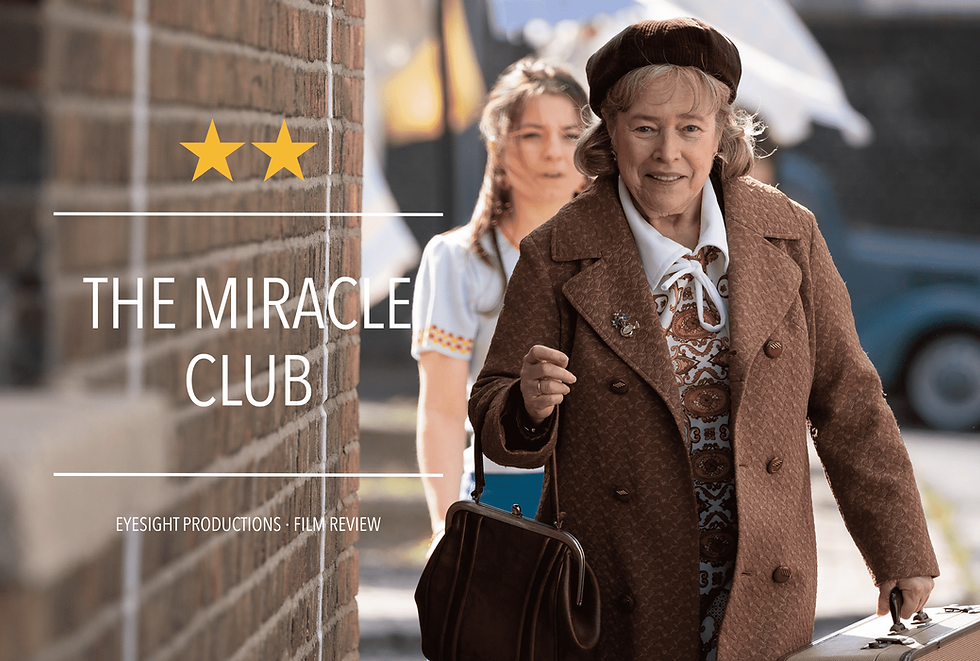
Every so often a British light-hearted film comes along to warm our souls and lift our spirits. From films such as Fisherman’s Friends and The Railway Children Return, these stories look, sound and feel like home with an atmosphere that captures the lighter side of the country. The same can be said for The Miracle Club, and one of the reasons it looks and feels like this is in due to the filmmaker, Thaddeus O’Sullivan, who has had more experience with television series such as Call the Midwife and Silent Witness. The Miracle Club is his most high profile film yet and sadly his inexperience and with an unsubstantial script, the film feels rather flat.
The Miracle Club is centred around a trio of ladies, played by Maggie Smith, Kathy Bates and Agnes O’Casey. This group all play residents of a local Irish town who enter a talent show to win a trip to Lourdes in France, with each one of them having a reason to travel to the “place of miracles”, hence the title. Then enters Laura Linney as Chrissie, who arrives after the unfortunate death of her mother, and Chrissie attempts to make amends with the group who were dear friends with her late mother. As you can imagine, the story digs into their history which reveals some twists and turns along the way with Chrissie’s childhood. Unfortunately there is a lot of drama and the humour feels almost forgotten in some places in the film. The result is a very unbalanced film.
The film does a nice job at capturing the locations of Ireland and France, with the architecture and scenery, but only to a degree as the film focuses more on the smaller sets such as hotels and the baths, instead of the more popular spots. The story does shift a little back and forth from Ireland and France so you can see how the husbands at home are getting on, which does provide some humorous moments. Some of these instances do feel a little dated, especially with the whole the wife should stay at home and cook analogy which gets used a few times in the film, but this is more of a reminder of what the 1960s were like. Despite that, the focus on the women does provide a more progressive view of the period.
The story doesn’t flow too well either, as the focus between the return of Chrissie, and the women finding their own personal miracles keep shifting to the point where you forget the other storylines. The outcome isn’t what you expect either. Chrissie does get closure by the end of the film, but the other characters feel like the experience of going to Lourdes didn’t help them in any way, instead they make peace with their own personal problems and learn to keep their faith in themselves. Overall, the film is just a light-hearted adventure. It is a little forgettable and doesn’t achieve anything new or significant, but it is a nice easy watch.
★★☆☆☆
2/5
Final Verdict:
The Miracle Club feels a little twee in places, but I feel like that was what the filmmaker intended. It’s a gentle story about three women who all have some personal problems which need fixing, but there isn’t necessarily a resolution. That could be the point of the film, but with shifting focuses on the story and a rather bland script, it doesn’t really do the film any favours. The Miracle Club is a fun watch, but sadly not a memorable one.
Thanks for reading today’s blog!
Alex Murray, the Head of Eyesight Productions
留言